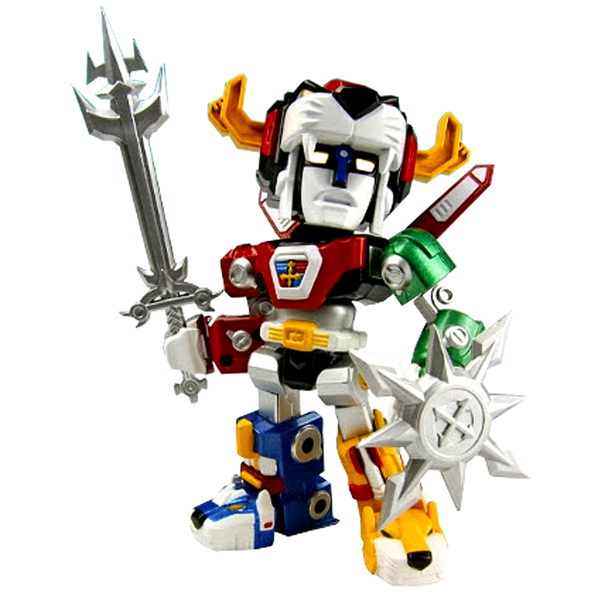A superorganism: what you get when you pile an army of specialized organisms together, and instead of just becoming a jumble, they become a new, single animal. Think the thousands of polyps in a coral:
Think an ant colony:
Think Voltron!
Can a school faculty become a superorganism?
I've just finished the book Holacracy: The New Management System for a Changing World, by Brian J. Robertson, and I am stoked.
I'm not yet, however, fully convinced. And since management system philosophies spread through the world as fads (and sometimes like cults!), I'll keep my Skeptic Hat on.
Holacracy tries to solve some of the generally-accepted problems of modern organizations:
- In top-down organizations, employees have information, but managers make decisions.
- In top-down organizations, authority is unclear.
- In top-down organizations, attempts to solve problems end up causing exciting new problems.
- In top-down organizations, meetings drag on without resolution.
And it does it by adopting an intensively rule-based system of governance.
- The information that employees have is quickly distributed throughout the entire system.
- Roles are simply, and precisely, defined — and always ready to be tweaked when needed. Everyone knows what their authority is, and is freed to use it fully.
- Holacracy abandons any attempts to "solve problems" in meetings, judging that too complex and likely to fail. Instead, meetings briefly "address tensions", and let large-scale solutions evolve on their own.
- Holacracy has many meetings, but they get many things done.
I'm excited at the prospect of trying this in our school.
I've been a fan, for a long time, of David Allen's Getting Things Done methodology for personal productivity. Through trial and error, Allen evolved a system for overcoming the many cognitive quirks that beset our attempts to control ourselves.
Holacracy attempts to do the same thing for working with other people. (And it has a strong champion in none other than David Allen, who said "the Holacracy model rocked my world"!)
We're trying to solve a lot of mysteries in our new-kind-of-school. One of the biggest ones: how can we support teachers to be brilliant creators? How can we cultivate a place to let the art of teaching be taken to glorious new heights?
Constructing a rich curriculum is step one: devising lessons and projects that teachers can draw from so as to not have to reinvent the wheel. But allowing teachers to control how they craft those lessons is step two. And enabling all of us to help each other improve our art is step three.
Holacracy might give us a support system for some of these.
Perhaps the most common criticism I've read online so far is that it's too difficult to move a pre-existing organization over to Holacracy. For our still-to-be Seattle-area school, of course, that's no problem!
But there are many, many other criticisms (and an equal number of praises) from employees who have used Holacracy. I'll be sifting through these in the coming weeks. If you've any insight on how Holacracy (or other management philosophies) might help bring a new kind of school into the world, please let me know!
For more on Holacracy, get the basics at holacracy.org, and then Google "holacracy" to find complaints about it — I find the mixed rollout at Zappos to be especially instructive.




